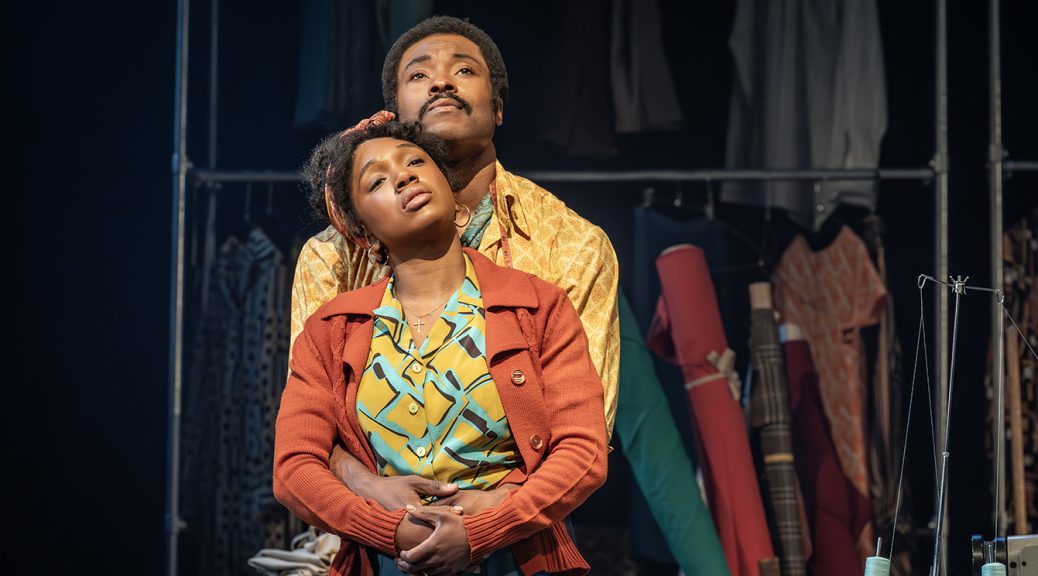Michael Abbensetts’ play, revived via the Black Plays Archive project for the first time since its 1978 premiere, is easy to commend. The script, with additional material by Trish Cooke, is neat. Abbensetts has important things to say and says them well. The action is tight, following West Indian immigrant Walker Holt over the course of his “make or break day” as he works to secure his own tailoring business.
This is an ‘issues’ play, reportedly inspired by the Kitchen Sink school, with plenty of detail about the racism that Holt and his friends face. Abbensetts’writing is nuanced, with a love triangle subplot that provides an impressively strong female perspective. Its thorough, well-rounded characters are impossible not to care about.
With such a strong base, it’s no surprise, yet still an achievement, that the acting is superb: sure-footed, impassioned and enjoyable. Led by Arinzé Kene as Holt, who is a commanding presence, his character’s employees, played by Gershwyn Eustache Jnr and Karl Collins, are superb as they tackle their difficult boss and reveal complex dynamics. Cherrelle Skeete is excellent as Holt’s long-suffering wife, a powerful role that manages to challenge his dominance. All the cast bring out the considerable humour in the piece.

There’s plenty to like and caveats are small. Some movement (credited to Shelley Maxwell) could be sharper and – take your pick – more naturalistic or more stylised. Here, we have an in-between that’s occasionally messy. The set and costume design from Frankie Bradshaw is undoubtedly accomplished. But I wasn’t sure if the garments rising and falling were connected to Holt’s daydreams and working it out was distracting. And the revolving stage feels unnecessary as the action is set solely in a Carnaby Street workshop. Too much time is taken trying expand the play. This includes a contemporary figure who makes random appearances and feels a forced effort to give the work relevance since Abbensetts already provides a youthful perspective with the character of Courtney, depicted skilfully by Raphel Famotibe.
There is a sense that Lynette Linton’s usually excellent direction is effortful, excessive. The script doesn’t need the help the production thinks it does as the play opens up by itself. As well as racism, Abbensetts targets capitalism. The price to pay for Holt’s hard work is the loss of love. His happiness is sacrificed in a search for security. That Holt is warned off his ambitions (by another immigrant, Mr Nat, played by Colin Mace) and seems to recognise his mistakes makes the play a tragedy. The changes referenced in the title must start with the personal – a strong idea that doesn’t need overplaying.
Until 5 April 2025
Photos by Marc Brenner


